featured
New York Marijuana Sales Near $1.5 Billion Total As Number Of Stores Nearly Tripled Last Year, State Report Says
Published
5 months agoon
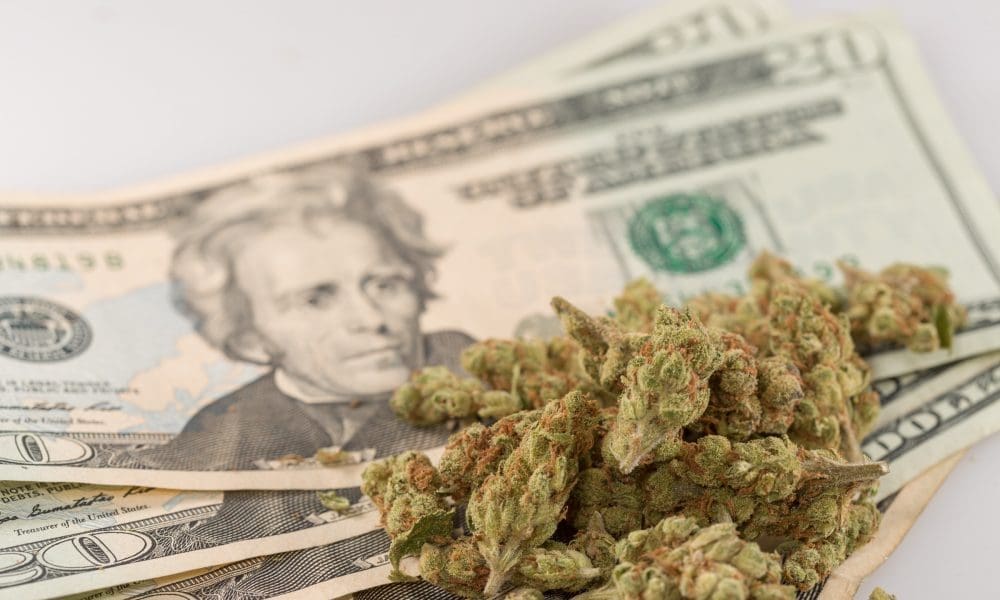
After a slow initial launch to its adult-use marijuana market, New York in 2024 saw the number of legal stores nearly triple, according to a new Office of Cannabis Management (OCM) report, fueling total sales for the year of $869 million.
By the end of the year, says OCM’s 2024 Market Report, 260 retail locations were operational statewide, stocking more than 500 brands of product. All told, since the launch of the retail market, licensed stores had sold more than $1 billion in legal marijuana.
Including sales so far in 2025, New York’s legal cannabis market is now close to reaching $1.5 billion worth of purchases.
New York last year “witnessed significant sales growth and a substantial increase in tax revenue generated from licensed cannabis sales,” the new report says, “reinforcing the positive impact of a well-regulated cannabis market.”
“This market report reflects the dynamism of New York’s cannabis industry—an industry that is shifting rapidly as the market matures and encounters both opportunities and challenges,” Felicia A.B. Reid, the office’s acting executive director, said in a statement Tuesday. “But, as ever, OCM is deeply committed to ensuring that the industry is reflective of New Yorkers and creating meaningful and forward-looking opportunities for communities historically affected by cannabis prohibition.”
As for the state’s efforts toward building an equitable cannabis industry, the new state report says that social and economic equity (SEE) applicants hold 55 percent of licenses, including 81 percent of retail dispensary licenses and 58 percent of microbusiness licenses.
2024 Market Report, NY Office of Cannabis Management
Meanwhile operators licensed under the Conditional Adult Use Retail Dispensary (CAURD) program, designed to acknowledge disproportionate enforcement of cannabis laws against some communities, “accounted for 70% of open retailers at the end of 2024,” OCM said.
Perhaps unsurprisingly, sales were strongest in densely populated areas, such as Manhattan, Queens and Long Island.
The report is designed to provide regulators at the Cannabis Control Board (CCB) with information necessary to oversee and adjust the state system and promote the “the goals of inclusion, fairness, and sustainability set forth in the Marihuana Regulation and Taxation Act (MRTA),” according to an OCM press release.
“The comprehensive data from this report enable us to understand the current state of the market and proactively advance regulatory and policy decisions that enhance the long-term viability of New York’s cannabis sector,” said John Kagia, OCM’s executive deputy director of market policy, innovation and analytics. “With insights on sales trends, product diversification, and consumer behavior, we’re equipping the CCB to support businesses navigating the market’s competitive pressures and evolving demands.”
The market has continued to expand since the end of the year, says OCM’s press release about the new report. As of April of this year, it says, 368 retailers have been licensed statewide, with total sales “nearing $1.5 billion.”
2024 Market Report, NY Office of Cannabis Management
In addition to updates on operational retailers, sales and licensing, the report also touches on market trends such as purchasing behaviors and consumers’ increased use of non-flower products, such as vape products and edibles.
Flower products, including prerolls, accounted for less than half (45 percent) of sales, which the report says reflects “the strong demand for value-added products, including vaporizers, edibles, and concentrates, [which] has grown.”
The findings align in part with a recent Centers for Disease Control and Prevention (CDC) report that found significant decreases in the use of flower, concentrates, oil, tinctures and topicals among U.S. consumers in certain states. That report also found increases in the use of edibles, beverages and vape cartridges.
For those who do by flower in New York, nearly two-thirds (63 percent) buy products in 3.5-gram packages, or an eighth of an ounce.
2024 Market Report, NY Office of Cannabis Management
About 23 percent of flower sales, meanwhile, were of brands owned by state-licensed medical marijuana operators, known in New York as registered organizations (ROs). Prices of flower products from ROs were typically more expensive than those from adult-use brands, especially for larger packages.
As for prerolled joints, most (80 percent) were one gram apiece, with half-gram prerolls (15 percent) making up most of the remainder. Packages with five or more prerolls were most common, making up 60 percent of sales. Single joints made up 33 percent of preroll sales, meanwhile.

2024 Market Report, NY Office of Cannabis Management
The most popular flavors for edibles, meanwhile, were raspberry (7 percent), watermelon lemonade (5 percent), blueberry (5 percent), peach (4 percent) and watermelon (4 percent). Beverages were most popular in cans (78 percent), followed by concentrated drops (9 percent), powder (6 percent), tea bags (5 percent) or shots (2 percent).
Among the recommendations in the new OCM report include continuing to educate consumers about the legal market.
“Most of New York’s legal cannabis demand will come from consumers transitioning from the illicit market to the regulated market, not from new consumers who began using cannabis after it was legalized,” it says. “The legal market is still in its early stages of growth, having captured less than one-fifth of the estimated total addressable demand in the State.”
“Many consumers are unfamiliar with the products and brands they are encountering in the regulated market and rely on their experiences in the illicit market to inform their product purchases,” it continues. “Consumer education can therefore play a critical role in informing customer purchase decisions and enabling consumers to better understand the effects and experiences associated with regulated products.”
Ahead of the 4/20 holiday earlier this month, regulators rolled out a “higher education” campaign meant to provide adults with information about how to “make informed, responsible decisions about cannabis,” including how to locate state-licensed retailers.
The office also advises that “Continued enforcement against the illicit market is critical to building a health regulated market,” pointing to what it describes as successful enforcement efforts in 2024. Last spring, for example, officials in New York City launched Operation Padlock, an enforcement initiative meant to shutter illegal storefronts. Within months, licensed shops that were open before the operation began saw sales climb 105 percent, according to an OCM survey.
OCM also recommends in the new report that all adult-use cultivators—not just ROs and certain others—be permitted to grow marijuana in indoor facilities, though it acknowledged that allowance could increase the industry’s energy footprint.
“Authorizing adult use cultivator licensees to transition to indoor cultivation facilities will address the limited availability of indoor grown flower and increase supply chain stability,” the report says. “This will ensure that all cultivators can grow in the environments best suited for their business models and address the market 61 imbalance created by having only a limited number of growers authorized to grow indoors.”
Big picture, federal policy changes “will shape the next chapter of legal market growth,” officials wrote, though they noted those changes “could still be years away.”
The Drug Enforcement Administration (DEA), for example, “had indicated that it would consider rescheduling in 2025,” the report says, “however the start of the hearings process has been delayed by procedural challenges.”
Earlier this month, a group of doctors who support drug policy reform withdrew its lawsuit against DEA over the rescheduling process, in part to avoid “more delay” in the already-stalled proceedings, the organization said.
With DEA’s rescheduling process stalled indefinitely—tied up in a separate administrative challenge from pro-reform witnesses—plaintiffs said maintaining the lawsuit “could have resulted in more delay.”
Even if rescheduling proceeds, the OCM report says, the administrative process “will likely take years to finalize as the proposed rules navigate the federal review process and the likely legal challenges that will follow.”
“OCM is working to better understand the full potential implications of federal reform, and to prepare the market for changes that may be necessary under a new federal regime,” it adds. “Where appropriate, OCM will also continue to offer federal policymakers New York’s assessment of how current and proposed federal rules impact the operations and outlook of New York’s legal market.”
Earlier this month in New York, meanwhile, state cannabis regulators and labor officials announced the launch of a workforce training program aimed at “providing comprehensive safety education to workers” in the state’s legal marijuana industry.
Separately, OCM’s press secretary recently indicated the office is working on plans to expand permitting and licensing rules that could allow adults to buy and consume marijuana at movie theaters. Authorizing sales of cannabis products at theaters would set New York apart as it continues to build upon the state’s legalization law.
Days before that, Gov. Kathy Hochul (D) signed a pair of companion bills into law that are meant to expand New York’s marijuana farmers market program, allowing for more partnerships between licensed cannabis businesses and standalone “pop-up” events.
New York initially authorized cannabis farmers market events in 2023, aiming to expedite consumers access as traditional retailers were being approved and help producers bring their products directly to market. Last December, Hochul separately signed legislation to revive the program after it sunsetted in January 2024.
The farmers market events as originally authorized were largely responsive to the slow roll-out of New York’s adult-use marijuana program, which faced multiple delays in implementation amid litigation. But the state’s industry has gradually expanded, with officials in January touting $1 billion in total sales since the market launched.
State officials also recently launched a grant program that will award up to $30,000 apiece to retail marijuana businesses to help cover startup costs.
Also, earlier this year, a collective of businesses licensed under the CAURD program called on Hochul to forgive tens of millions of dollars in high-cost loans issued under a governor-created social equity loan fund.
Assembly Majority Leader Crystal Peoples-Stokes (D) said in December that there’s a need to extend financial aid to CAURD license holders, many of whom are struggling under the high-cost loans.
Critics—including the NAACP New York State Conference, Black Cannabis Industry Association, Minority Cannabis Business Association, Service Disabled Veterans in Cannabis Association, Drug Policy Alliance, NYC NORML and VOCAL-NY—wrote to the governor earlier that month to express dismay at what they described as marijuana regulators’ “efforts in service of big corporations at the expense of small business and equity outcomes.”
The advocates said at the time that since the departure of the state’s first chief cannabis regulator, Chris Alexander, last may May, state officials had demonstrated a “shift toward corporate interests at the expense of small business, justice-involved entrepreneurs, and Conditional Adult-Use Retail Dispensary (CAURD) licensees who are directly impacted by prior marijuana arrest.”
Last month, regulators also launched a new resource meant to connect licensed marijuana businesses with banks that are willing to work with the industry, even as federal prohibition continues to pose barriers to financial services.
In 2023, the governor signed legislation that aims to make it slightly easier for financial institutions to work with state-licensed cannabis clients.
The law authorized OCM to provide financial institutions with information about marijuana business licensees or applicants, which is meant to ease compliance with reporting requirements. Licensees and applicants would first have to consent to information being shared.
A recent budget proposal from Hochul aims to empower police who claim to smell marijuana to force a driver to take a drug test—a plan that’s drawing pushback not just from reform advocates but also from the state’s Assembly majority leader and the governor-appointed head of OCM.
Meanwhile in New York, the state Senate earlier this month approved a bill to expand housing protections for registered medical marijuana patients, aiming to prevent evictions based solely on their lawful use of cannabis.
Senators this session have also introduced a bill for the 2025 session to broadly decriminalize drug possession.
Several psychedelics bills have also been filed in New York—including one calling for the legalization of certain entheogenic substances such as psilocybin and ibogaine for adults 21 and older.
The governor argued in June, meanwhile, that there’s a direct correlation between stepped-up enforcement and “dramatically” increased legal sales. A report by state officials last year found both “growing pains” and “successful efforts” in New York’s marijuana market launch.

Author: mscannabiz.com
MScannaBIZ for all you Mississippi Cannabis News and Information.
You may like
-


Pending Federal Hemp Legislation Could Reshape The Legal Industry By Banning Some Products (Op-Ed)
-
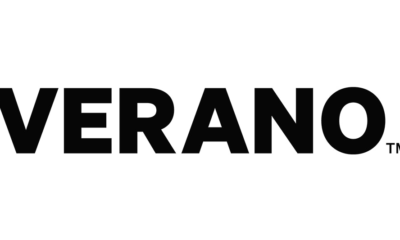

Verano Proposes to Redomicile Parent Company From British Columbia to Nevada
-


8,000 cannabis plants seized from illegal Bradford grow-op
-


New York Lawmakers Schedule Psychedelics-Focused Hearing To Discuss ‘Medicinal Value And Risks’ Of Psilocybin
-
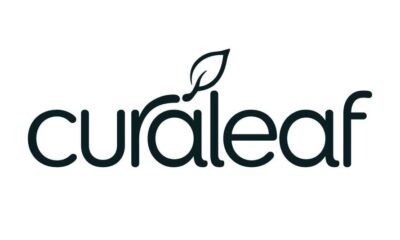

Curaleaf Opens Cannabis Dispensaries in Florida, Ohio
-


How to Protect Your Outdoor Cannabis Crops From Pests
featured
Pending Federal Hemp Legislation Could Reshape The Legal Industry By Banning Some Products (Op-Ed)
Published
39 minutes agoon
September 15, 2025
“The outcome of the debates around these provisions will determine the future of hemp-derived products in the United States, and the economic viability of the industry.”
By Lauren Estevez and Joanne Caceres, Dentons US Cannabis Group
As Congress returns from recess this month, the hemp industry is closely monitoring provisions that could fundamentally reshape the entire sector.
The 2018 Farm Bill removed hemp and its derivatives containing less than 0.3 percent delta-9-THC from the Controlled Substances Act. A so-called “unintended consequence” was that it became possible to produce hemp products that complied with the limit but had sufficient amounts of THC to produce an intoxicating effect.
Sales of such products, including hemp beverages and edibles, have increased significantly, encouraged by consumer demand for alternatives to alcohol. Hemp beverage sales alone are expected to more than double over the next four years, to reach $4.4 billion by 2029. All of this could change under provisions contained in pending appropriations legislation.
Sens. Mitch McConnell (R-KY) and Rand Paul (R-KY) have been dueling over various provisions that could dramatically change the hemp market, with McConnell vowing to “close the Farm Bill loophole” responsible for the intoxicating hemp market. In contrast, Paul is looking to “reach a compromise” on key provisions that would further regulate the hemp industry rather than upend it.
As current appropriations legislation makes its way through the legislative process in the House and the Senate, these are the key provisions that state regulators, consumers and the hemp industry should be watching. There is also pending federal legislation that would regulate hemp products apart from the Farm Bill.
“Total” THC Concentration Calculation Effectively Prohibits Certain Intoxicating Products
One of the provisions that appeared in House and Senate versions of agriculture appropriations legislation—before being removed from the Senate version—would add other THC molecules to the calculation for the 0.3 percent delta-9-THC limit.
The 2018 Farm Bill defined legal hemp as “the plant Cannabis sativa L. and any part of that plant…with a delta-9 tetrahydrocannabinol concentration of not more than 0.3 percent on a dry weight basis.” In contrast, the current bills account for “total tetrahydrocannabinol concentration (including tetrahydrocannabinolic acid) of 0.3 percent in the plant on a dry weight basis.”
This provision would bar certain products from the market which have low delta-9-THC but have high concentrations of other intoxicating THCs (such as THC-A, Delta-8 THC, THC-O, etc.). This would outlaw many hemp products currently on the market, especially hemp flower products and vape products with high THC-A, and cause disruption to many business owners, especially smoke shops and gas stations, where such products thrive.
If enacted, it would require manufacturers to reformulate certain products and invest in new testing procedures to ensure compliance with the narrower definition for legal products.
Excluding Synthetic Cannabinoids And Conversion Will Lower Supply and Increase Input Costs
The agriculture spending legislation also excludes synthetic cannabinoids from the definition of legal hemp products. These provisions exclude cannabinoids that are not naturally produced in the cannabis plant, and those which are naturally occurring but which are produced “outside of the plant.”
While synthetic THCs are currently illegal under the Controlled Substances Act, there is legal uncertainty around naturally occurring THCs which are created through chemical processes from the naturally extracted hemp cannabinoids (frequently, naturally occurring CBD is converted to delta-9-THC and other intoxicating cannabinoids).
A prohibition against converting CBD to THC would significantly impact the cost to make these ingredients for intoxicating hemp products. Manufacturers that currently rely on these converted cannabinoids would need to discontinue certain product lines altogether or produce them with naturally occurring cannabinoids at tighter margins.
Ban On “Quantifiable” THC Or Intoxicating Cannabinoids Would Push Intoxicating Hemp Products Back To Illicit Market And Inadvertently Harm The Non-Intoxicating Cannabinoid Wellness Market
The most controversial provision would limits the “legal limit” of THC concentration in hemp products from 0.3 percent to “no quantifiable” amount of THC, with quantifiable amount to be defined by the Department of Health and Human Services (HHS) in consultation with the U.S. Department of Agriculture (USDA).
The provision would create tremendous disruption for the hemp industry, state regulators and customers. As currently drafted, the definition of “no quantifiable amount” is ambiguous as to whether it means 0 percent or some other threshold. Certificates of analysis usually denote no “detectable amount” when testing is below a certain limit.
The definition of “quantifiable” is unknown. This rule could ensnare full spectrum and CBD products, which are neither intended nor designed to be intoxicating. The change would also conflict with the many state laws that allow for 0.3 percent and or have quantifiable limits like 2.5mg, 5 mg, or 10mg of THC per serving or package for legal hemp products.
Standalone Hemp Regulation Bills Like Griffith’s Proposed Approach
While additional regulation of hemp products is sorely needed, a regulatory approach focused on health and safety will ultimately be more effective than a prohibition bill.
Draft legislation from Rep. Morgan Griffith (R-VA) circulated in late August would allow for hemp product sales to adults aged 21 and over, and would require HHS to determine THC thresholds within 60 days of passage of the bill.
The legislation would require labels to contain a QR code linking to a certificate of analysis showing which cannabinoids the product contains and in what quantities, prevent hemp producers from adding alcohol and nicotine to their products and require tamper-proof packaging that does not appeal to youth.
In the event that HHS fails to establish THC thresholds within the required timeframe, the bill would automatically implement the following limits:
- Oral hemp products with non-intoxicating cannabinoids: Up to 10mg/serving and 50mg/package.
- Inhalable products: Up to 100mg/serving and 500mg/package.
- Topical products: Up to 100mg/serving and 500mg/package.
- Intoxicating cannabinoid products (e.g. items containing THC): Up to 0.2mg/serving and 1mg/package.
The restrictions in Griffith’s bill mirror many state regulations that are already in place, and the automatic THC thresholds that would be implemented allow for a larger variety of products than the restrictions in the appropriations bills. However, the proposed limits to intoxicating cannabinoid products suggested would effectively eliminate the legal hemp intoxicating product market.
Conclusion
The pending appropriations bills and other hemp legislation could dramatically reshape the hemp industry, with proposed provisions that could significantly tighten the regulatory landscape.
If Congress redefines THC limits to include all cannabinoids, excluding converted and synthetic cannabinoids, or potentially imposes a “no quantifiable” THC threshold, lawmakers are signaling a shift toward significant product restrictions for hemp producers.
These changes would not only disrupt current business models and product lines but also create substantial compliance challenges for manufacturers and state regulators.
The ambiguity surrounding key terms like “quantifiable” further complicates the path forward, raising questions about enforcement and conflicts with existing state laws.
All hemp products, whether intoxicating or not, would be impacted by these provisions if passed as drafted. Such stark changes to the law would likely push such products to the illicit market, making them less safe.
Instead, an approach similar to states like Minnesota, which allows low intoxicating dosages of up to 10mg, or less THC for beverages, as determined at the state level, would be a more suitable alternative for Congress to consider.
Now that Congress is returning from recess, the outcome of the debates around these provisions will determine the future of hemp-derived products in the United States, and the economic viability of the industry. Ultimately, any of this federal legislation would be a critical turning point for the industry, either fostering continued growth and regulatory clarity, or introducing new hurdles that could reshape the market for years to come.
Lauren Estevez is a Senior Managing Associate in the Dentons US Cannabis Group. Joanne Caceres is a Partner in the Dentons US Cannabis Group.

Author: mscannabiz.com
MScannaBIZ for all you Mississippi Cannabis News and Information.
featured
Verano Proposes to Redomicile Parent Company From British Columbia to Nevada
Published
2 hours agoon
September 15, 2025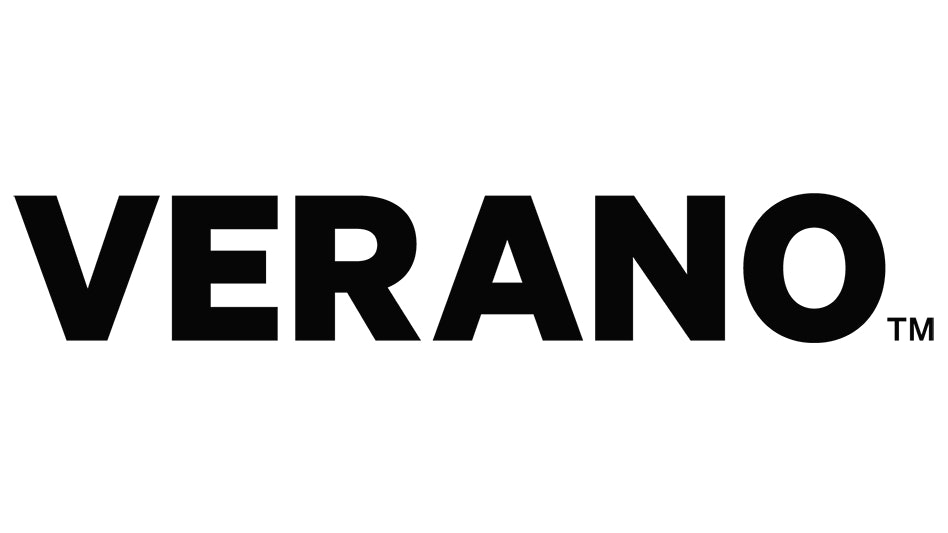
[PRESS RELEASE] – CHICAGO, Sept. 15, 2025 – Verano Holdings Corp., a leading multistate cannabis company, announced that the company’s board of directors approved, and the company will be seeking shareholder approval of, a proposed plan to redomicile Verano Holdings Corp. from British Columbia, Canada, to the state of Nevada.
Verano believes that redomiciling in the United States better aligns with its U.S.-based business and operations and streamlines its organizational and regulatory structure within the United States, among other reasons discussed in the preliminary proxy statement filed by the company on Sept. 12, 2025, with the U.S. Securities and Exchange Commission and in Canada on SEDAR+ (the “preliminary proxy statement”).
“Since inception and our 2021 go-public transaction, we’ve focused on ways to unlock shareholder value and create potential catalysts for the business, including enhancements to our corporate structure and executing a capital markets strategy that positions Verano to capitalize on near and long-term growth opportunities,” Verano Chairman and CEO George Archos said. “From our 2023 strategic decision to list company shares on Cboe Canada, a senior U.S.-based exchange with global operations, to our redomiciling in the U.S. as a newly-registered Nevada enterprise, we are prepared to leverage opportunities that benefit the company and our shareholders.”
The company’s plan to redomicile Verano Holdings Corp. in the United States is not expected to materially impact its existing manufacturing and retail business, which spans 13 U.S. states, including the location of its corporate headquarters in Chicago.
Pursuant to the company’s proposed plan of arrangement, Verano will continue from the jurisdiction of British Columbia, Canada, to the jurisdiction of the state of Nevada (the “continuance”). Upon completion of the continuance, the issued and outstanding subordinate voting shares of the British Columbia-formed Verano Holdings Corp. will automatically be exchanged on a one-for-one basis for shares of common stock of the continued Verano Holdings Corp. domiciled in Nevada (“Nevada common stock”). Each of the company’s outstanding stock options and restricted stock units will be deemed to be adjusted pursuant to the terms of the company’s stock and equity incentive plan to become a stock option and a restricted stock unit to receive an equal number of shares of Nevada common stock, respectively.
The preliminary proxy statement was filed in connection with a proposed special meeting of the company’s shareholders to consider and, if thought advisable, approve a plan of arrangement implementing the continuance. The company’s board of directors may, at any time, including after receiving shareholder approval, in its discretion, decide not to proceed with the arrangement and not complete the continuance.
Upon completion of the continuance, the Nevada common stock will trade on the Cboe Canada exchange under the company’s existing ticker symbol, “VRNO,” and be quoted on the OTCQX under the symbol “VRNOF.”
For more information on Verano Holdings Corp., visit the company’s investor website: https://investors.verano.com/.

Author: mscannabiz.com
MScannaBIZ for all you Mississippi Cannabis News and Information.
featured
New York Lawmakers Schedule Psychedelics-Focused Hearing To Discuss ‘Medicinal Value And Risks’ Of Psilocybin
Published
3 hours agoon
September 15, 2025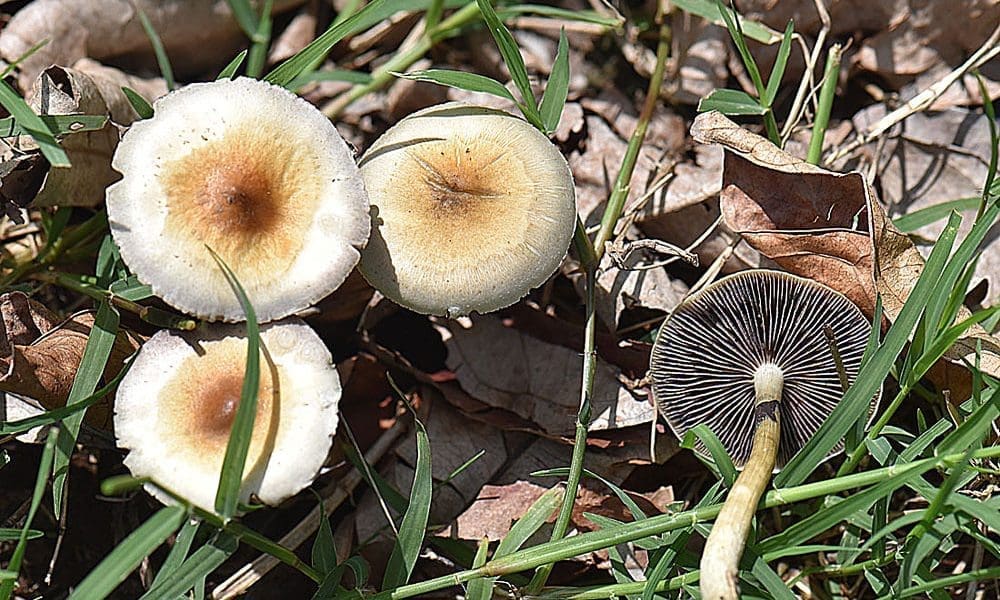
New York lawmakers have scheduled a hearing to discuss the medical potential of psilocybin as the state considers pursuing a pathway for regulated access to the main psychedelic component of “magic mushrooms.”
In a notice published by the Assembly Health Committee on Wednesday, Chairwoman Amy Paulin (D) noted that, while psilocybin is currently listed as a Schedule I drug, the federal Food and Drug Administration (FDA) has designated it as a “breakthrough therapy” for major depression—indicating that “the therapy may offer improved results for such conditions over currently approved treatments.”
A meeting to go over the science and potential regulations of the novel therapy is scheduled for September 30. Oral testimony is by invite only from the committee, and witnesses have not yet been announced.
“Various localities have enacted measures regarding psilocybin, including the states of Colorado, Oregon, and New Mexico which allow for its supervised use, citing its potential as a treatment for some mental health conditions,” the notice says. “However, more information is needed to better understand the medicinal value that psilocybin may have as a therapy in New York State.”
“To this end, the Committee seeks to hear from researchers, medical experts, and other stakeholders on the potential medicinal value and risks of psilocybin,” Paulin said.
The chairwoman introduced a bill to legalize psilocybin for adults last year, provided they obtain a permit after undergoing a health screening and educational course.
New York legislators have taken special interest in psychedelics reform in recent sessions.
—
Marijuana Moment is tracking hundreds of cannabis, psychedelics and drug policy bills in state legislatures and Congress this year. Patreon supporters pledging at least $25/month get access to our interactive maps, charts and hearing calendar so they don’t miss any developments.![]()
Learn more about our marijuana bill tracker and become a supporter on Patreon to get access.
—
For example, in January, Assemblymember Linda Rosenthal (D) filed legislation calling for the legalization of certain entheogenic substances such as psilocybin and ibogaine for adults 21 and older.
The bill would amend state statute to make legal the “possession, use, cultivation, production, creation, analysis, gifting, exchange, or sharing by or between natural persons of twenty-one years of age or older of a natural plant or fungus-based hallucinogen.”
DMT, ibogaine, mescaline, psilocybin and psilocyn would fall under the definition of “natural plant or fungus-based hallucinogens” that would be legalized by the bill.
Rosenthal’s measure was introduced just days after another New York lawmaker, Sen. Nathalia Fernandez (D), prefiled a measure that would legalize psilocybin therapy for patients with qualifying conditions.
Under that proposal, people could receive psilocybin treatment from a certified facilitator in a clinical setting, or at their home if they’re unable to travel. Patients and facilitators would receive protections against state-level prosecution.
Fernandez also filed an earlier version of the bill last session, but it did not move out of committee either. Only minor technical changes have been made in the latest iteration.
Bicameral New York lawmakers said at a briefing last year that there was a “real chance” that legislation to legalize psilocybin-assisted therapy would advance through committee, emphasizing that delaying action would “neglect” many “people who need help” with certain mental health conditions. That did not ultimately materialize, however.
“We’re in a mental health crisis, and so we need every tool that’s available to us,” Assemblymember Pat Burke (D), who sponsored another bill to create a psilocybin therapy pilot program for 10,000 people, said. He added that “we’re here to turn the page” on the broader drug war.
Photo courtesy of Dick Culbert.

Author: mscannabiz.com
MScannaBIZ for all you Mississippi Cannabis News and Information.

Pending Federal Hemp Legislation Could Reshape The Legal Industry By Banning Some Products (Op-Ed)

Verano Proposes to Redomicile Parent Company From British Columbia to Nevada

8,000 cannabis plants seized from illegal Bradford grow-op

New York Lawmakers Schedule Psychedelics-Focused Hearing To Discuss ‘Medicinal Value And Risks’ Of Psilocybin

Curaleaf Opens Cannabis Dispensaries in Florida, Ohio

How to Protect Your Outdoor Cannabis Crops From Pests

Feds provide anti-cannabis group a platform to bash legalization (Newsletter: September 15, 2025)

Dozen arrested after south Mississippi bust for illegal sales to underage customers

The Toking Traveler: Why Amsterdam Weed Is Mostly Boof

Arkansas Medical Marijuana Sales Are On Track To Set A New Annual Record

When Cannabis Brands Blur Into Youth Culture, Regulators Notice: Lessons From Tobacco’s Past

Rhode Island Marijuana Dispensary License Application Process Officially Launches

Middle school student found with cannabis in bookbag, Charles County deputies say

Smugglers who brought drugs on an industrial scale into Wales jailed

Attorney pulls out bag of cannabis in NC Supreme Court hearing

WHO AM I? Man wanted for New Bern cannabis store theft

Cannabis packages under scrutiny

California authorities shut down nearly $30 million worth of illegal cannabis operations

A Green Light for Cannabis? Europe Waits While the U.S. Untangles the Red Tape

Move Over, Booze: Weed Drinks Pulled $1.1 Billion in U.S. Sales in 2024

Congressional Committee Votes To Repeal Marijuana Expungements Law In Washington, D.C.

Times Square Welcomed Its Brightest Cannabis Billboard Yet

Smoking Marijuana With A Water Bong Doesn’t Effectively Filter Compounds From Smoke, Study Suggests

A Beginner’s Guide for Watering Cannabis Plants

Alert: Department of Cannabis Control updates data dashboards with full data for 2023

Connecticut Appoints The US’s First Cannabis Ombudsperson – Yes there is a pun in there and I’m Sure Erin Kirk Is Going To Hear It More Than Once!

5 best CBD creams of 2024 by Leafly

EU initiative begins bid to open access to psychedelic therapies
New Study Analyzes the Effects of THCV, CBD on Weight Loss

Free delta-9 gummies from Bay Smokes

5 best autoflower seed banks of 2024 by Leafly

Discover New York’s dankest cannabis brands [September 2024]

Press Release: CANNRA Calls for Farm Bill to Clarify Existing State Authority to Regulate Hemp Products

Curaleaf Start Process Of Getting Their Claws Into The UK’s National Health System – With Former MP (Resigned Today 30/5/24) As The Front Man

May 2024 Leafly HighLight: Pink Runtz strain

Local medical cannabis dispensary reacts to MSDH pulling Rapid Analytics License – WLBT

Recreational cannabis on ballot for third time in South Dakota

5 best THC drinks of 2024 by Leafly

Horn Lake denies cannabis dispensary request to allow sale of drug paraphernalia and Sunday sales | News

Mississippi city official pleads guilty to selling fake CBD products

6 best CBD gummies of 2024 by Leafly

Nevada CCB to Accept Applications for Cannabis Establishments in White Pine County – “Only one cultivation and one production license will be awarded in White Pine County”

The Daily Hit: October 2, 2024

5 best delta-9 THC gummies of 2024 by Leafly

Weekly Update: Monday, May 13, 2024 including, New Guide for Renewals & May Board meeting application deadline

PRESS RELEASE : Justice Department Submits Proposed Regulation to Reschedule Marijuana

5 best THCA flower of 2024 by Leafly

People In This State Googled ‘Medical Marijuana’ The Most, Study Shows
Trending
-

 California Cannabis Updates1 year ago
California Cannabis Updates1 year agoAlert: Department of Cannabis Control updates data dashboards with full data for 2023
-

 Breaking News1 year ago
Breaking News1 year agoConnecticut Appoints The US’s First Cannabis Ombudsperson – Yes there is a pun in there and I’m Sure Erin Kirk Is Going To Hear It More Than Once!
-

 best list1 year ago
best list1 year ago5 best CBD creams of 2024 by Leafly
-

 Business12 months ago
Business12 months agoEU initiative begins bid to open access to psychedelic therapies
-

 cbd1 year ago
cbd1 year agoNew Study Analyzes the Effects of THCV, CBD on Weight Loss
-

 Bay Smokes1 year ago
Bay Smokes1 year agoFree delta-9 gummies from Bay Smokes
-

 cannabis brands12 months ago
cannabis brands12 months agoDiscover New York’s dankest cannabis brands [September 2024]
-

 autoflower seeds12 months ago
autoflower seeds12 months ago5 best autoflower seed banks of 2024 by Leafly




